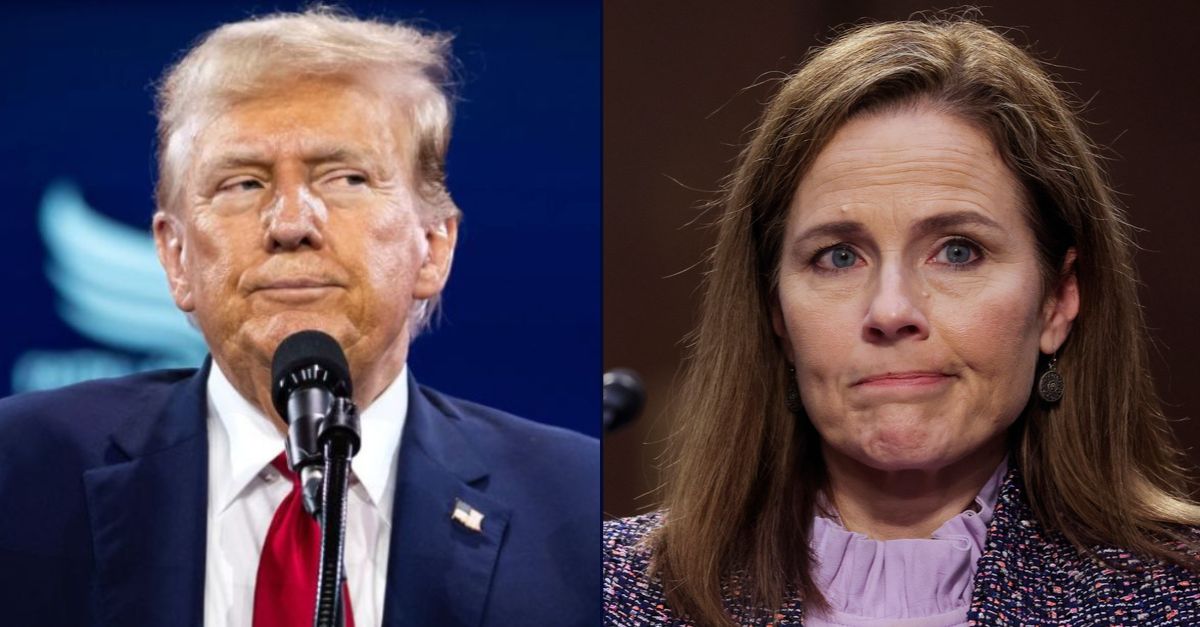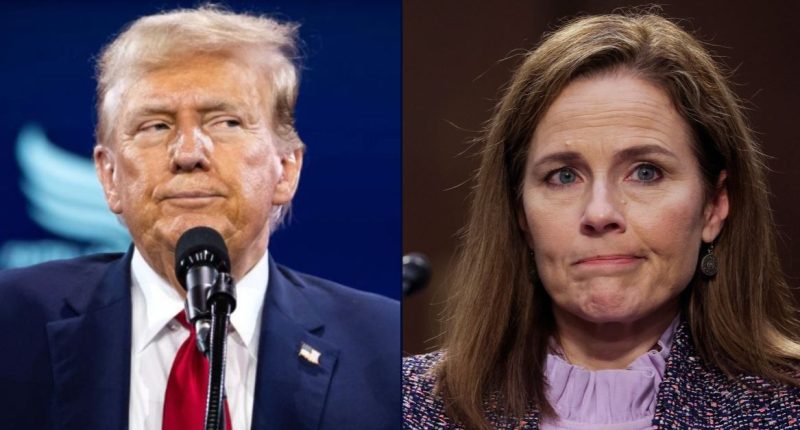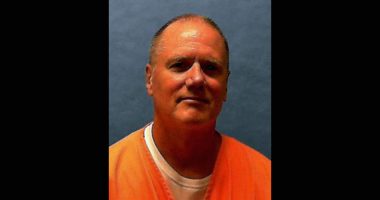
Left: Donald Trump speaks at the annual Road to Majority conference in Washington, DC, in June 2024 (Allison Bailey/NurPhoto via AP). Right: Justice Amy Coney Barrett testifies before the Senate Judiciary Committee on the third day of her confirmation hearings on Capitol Hill on October 14, 2020 in Washington, D.C., (Jonathan Ernst-Pool/Getty Images).
The Trump administration has urged a federal judge in Washington, D.C., to reject a request for a temporary injunction that would prevent the so-called U.S. Department of Government Efficiency (DOGE) from accessing the United States African Development Foundation (USADF) and unilaterally removing its Senate-confirmed board members and president.
U. S. District Judge Richard Leon last week became at least the fourth federal judge to cite Supreme Court Justice Amy Coney Barrett in issuing a ruling against the Trump administration, handing down an administrative stay blocking — at least temporarily — the firing of USADF President Ward Brehm. Leon’s stay paused the potential firing until 5 p.m. on Tuesday, and the judge also ordered that a hearing on the matter be held hours earlier, at 2 p.m. on Tuesday.
The George W. Bush appointee’s minute order directly quoted Barrett’s concurring opinion in last year’s U.S. v. Texas case when issuing the administrative stay, writing:
Given the significant statutory and constitutional issues involved, the Court will defer ruling on the motion until after it has received and considered the defendants position. In the interim, the Court will issue a brief administrative stay. An administrative stay “buys the court time to deliberate”: it “do[es] not typically reflect the courts consideration of the merits,” but instead “reflects a first-blush judgment about the relative consequences” of the case. United States v. Texas, 144 S. Ct. 797, 798 (2024) (Barrett, J., concurring).
Attorneys with the Justice Department on Monday filed a 21-page memorandum in opposition to the Foundation’s request for a temporary injunction preventing the administration from dismantling it at the behest of President Donald Trump.
The filing asserts that the board is not authorized to recognize Brehm as its president, adding that even the court “lacks authority to order the President and other Defendants to treat him as such.”
“The President acted pursuant to his constitutional and statutory authority in removing Brehm and the other four Foundation Board members,” the administration lawyers wrote. “The statute establishing the Foundation permits the President alone to select seven members for six-year terms subject to Senate confirmation. But nothing in the statute restricts the President’s ability to remove those members he appoints. And even assuming Congress could limit the President’s removal authority, the Supreme Court has explained it may only do so expressly. The lack of any express removal protections here means Brehm cannot prevail on the merits.”
The development comes less than a week after employees at the foundation on March 5 refused to grant DOGE workers access to the building. The foundation alleged that DOGE had previously gained access to their systems “under the false pretenses of “modernizing and streamlining” their computer systems, but actually had plans to “cancel all grants and contracts.”
The move prompted Pete Marocco, the director of the State Department’s Office of Foreign Assistance and acting deputy administrator of the U.S. Agency for International Development (USAID), to show up the next day with multiple U.S. marshals.
According to the complaint, the foundation was told that “President Trump did not need to follow the required process for advice and consent of the Senate and instead had appointed Pete Marocco as the sole board member (despite there still being four properly appointed board members, none of whom had received any notification of termination).”
Brehm, who ordered the foundation’s staff not to allow DOGE onto the premises, then filed a lawsuit seeking a court order preventing his removal from the foundation without a vote from the board, and preventing Marocco from being appointed to the board as an acting member.
Barrett’s previous decisions have frequently appeared in the litigation surrounding the Trump administration. Leon has became the fourth federal judge or judicial body to cite to Barrett’s concurring opinion, along with U.S. District Judges Randolph Moss and LorenAliKahn, both in Washington, D.C., as well as a federal appellate panel in Massachusetts.
Barrett also broke from the conservative bloc of justices last week when the high court refused the Trump administration’s request to halt a federal judge’s order requiring the federal government to payout nearly $2 billion in foreign aid funds for work already completed.
Love true crime? Sign up for our newsletter, The Law&Crime Docket, to get the latest real-life crime stories delivered right to your inbox.







